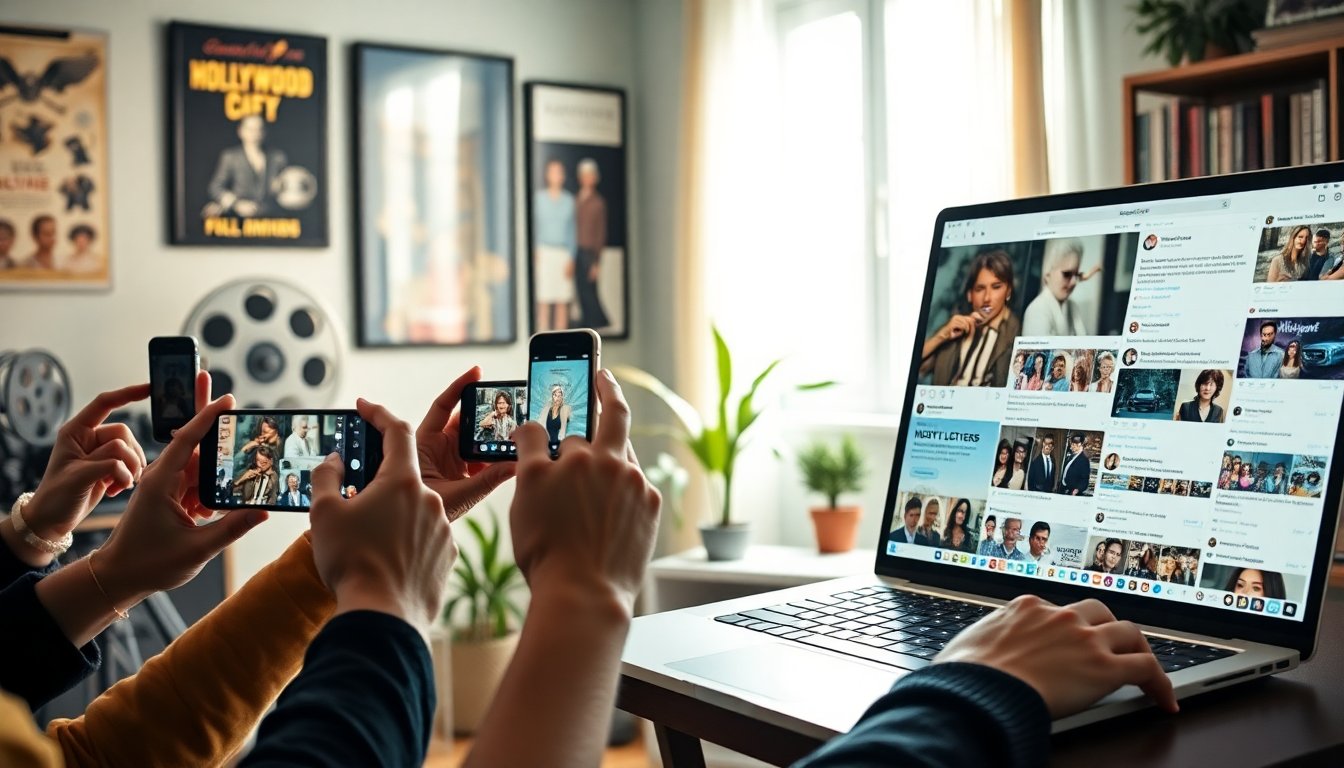Table of Contents
The evolution of celebrity culture in America
The culture of celebrity in America has experienced a profound transformation in recent decades. It has shifted from the golden age of Hollywood to the emergence of social media influencers. This evolution has significantly altered how we perceive and engage with celebrities.
Factors driving the change
Several factors have contributed to this shift. The advent of social media has allowed fans to connect directly with celebrities. Platforms like Instagram and TikTok enable influencers to share their lives and interact with their audiences in real time. This accessibility fosters a sense of intimacy and relatability that traditional celebrities often lack.
Implications for celebrities and audiences
This transformation brings both opportunities and challenges. Celebrities can cultivate loyal fan bases and promote their projects more effectively. However, the pressure to maintain a constant online presence can be overwhelming. For audiences, this evolution creates a more personal connection, but it also raises questions about authenticity and the nature of fame.
Historical context of American celebrity
American celebrities have traditionally been recognized for their contributions to film, music, or sports. Figures like Marilyn Monroe and Elvis Presley exemplified a time when fame was closely linked to talent and public image. The rise of technology and the internet has, however, significantly transformed this conventional model.
In the early 2000s, reality television reshaped the concept of celebrity, enabling ordinary individuals to achieve fame. Programs such as The Simple Life and Keeping Up with the Kardashians showcased a new breed of popularity based less on skill and more on personality, drama, and relatability. This evolution signified the onset of a new era, making the definition of a celebrity more fluid and accessible than ever before.
The impact of social media
The rise of social media platforms such as Instagram, TikTok, and Twitter has significantly transformed American celebrity culture. These platforms have democratized fame, enabling anyone with a smartphone and a creative idea to gain recognition. Influencers and content creators are now frequently regarded as legitimate celebrities, sometimes overshadowing traditional stars.
Moreover, social media fosters a more intimate connection between celebrities and their fans. Celebrities share their lives in real-time, providing insights into their personal experiences and promoting a sense of authenticity. This evolution has created new expectations among audiences; they increasingly desire a personal connection with the figures they admire.
Changing values and social consciousness
Societal evolution brings changes to the values that shape celebrity culture. Recently, there has been a notable shift towards social consciousness and activism among celebrities. Many stars are now using their platforms to advocate for critical issues such as climate change, racial equality, and mental health awareness. This trend highlights a broader societal movement that prioritizes authenticity and purpose over mere entertainment.
For example, celebrities like Leonardo DiCaprio and Taylor Swift have harnessed their fame to spotlight environmental concerns and social justice. This proactive engagement not only transforms their public personas but also inspires their fans to become more socially aware and active.
The role of authenticity
In today’s digital environment, authenticity is paramount. Audiences seek genuine connections, and celebrities who showcase their true selves often gain more admiration. The emergence of platforms like TikTok, which prioritize short and relatable content, has intensified this trend. Users are drawn to creators who present themselves in an unfiltered and authentic manner, resulting in a new breed of celebrity that thrives on transparency.
This yearning for authenticity is reflected in how fans engage with celebrities. Social media has created a two-way communication channel, enabling fans to voice their opinions and connect directly with their idols. Consequently, celebrities are increasingly aware of their public images and the messages they project.
The future of celebrity culture
The future of American celebrity culture is both uncertain and promising. As technology advances, new platforms and media forms are likely to emerge, reshaping the landscape of fame. The distinction between celebrities and fans will continue to blur, with more individuals gaining recognition through unconventional paths.
Additionally, the rising importance of social consciousness indicates that future celebrities will be expected to address social issues and connect with their audiences on a deeper level. The era of the untouchable star is fading, paving the way for a more relatable and engaged form of celebrity.
The evolution of American celebrity culture mirrors broader societal changes and technological progress. Understanding these shifts will be essential for both celebrities and their audiences as they navigate this dynamic environment.


